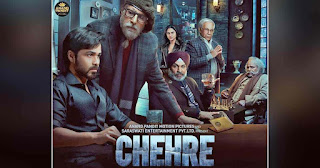Swaraj (Book Review)
Swaraj, Arvind Kejriwal , India
Arvind Kejriwal needs no introduction. He is a public figure
and has captured the attention of practically the entire nation. Currently he
is the chief minister of Delhi
and supremo of AAP. The first page of the book describes him as “a social
activist fighting to change the political system by bringing in transparency
and people’s participation.” He was the chief architect behind Anna Hazare’s
movement that drew national attention and created quite a wave. He graduated as
a mechanical engineer from IIT Kharagpur and has worked with Tata Steel, the
Indian Revenue Service (IRS) and was later joint commissioner in the income tax
department. He has founded an NGO, Parivartan, which strives to change the
lives of Delhi ’s
slum dwellers. He was an active campaigner for the Right to Information and was
awarded the Ramon Magsaysay Award in 2006 for his work on the same.
“This book”, in the words of Anna Hazare, “is a manifesto
for our times and for the anti-corruption movement and an effective model for
the nation to achieve true Swaraj”. The principal thesis of the book is that
Swaraj has not been attained. The independence we gained in 1947 was only a
formal signing. The whites went and the natives took control of power. Earlier,
the whites made life difficult and now the natives were doing so. During
British Raj, India was
governed from London .
Now, it is being governed from Delhi
and other state capitals. Kejriwal makes it certain that the fight for
independence was not only for liberation from the British but also for Swaraj.
The British have gone away but their system has remained in place.
The underlying belief is that Swaraj will genuinely
contribute to the development of the nation and will ensure justice and the
establishment of peace. The freedom fighters hoped that with the departure of
the British, the Indians would attain Swaraj and would right all the wrongs
done to them by the foreigners. But this has remained an unfulfilled wish. The
Indians took over and for a while there were genuine attempts at participative
democracy but with the passage of time and other circumstantial factors, power
began to accrue at the uppermost echelons of the Indian political hierarchy. It
is precisely this accumulation and consequent abuse of power that Kejriwal is
trying to hit at through this book.
He points out that leaders and officers sitting in Delhi formulate many
illogical schemes on the pretext of development. He has cited examples to that
effect. These schemes involve crores of rupees but hardly ever reach the people
it is intended for. The money is pilfered off on the way and the common man is
left in much the same way as when he started out. Kejriwal is of the opinion
that true swaraj or self-rule, requires that the people be taken into account.
It is their voice that must be heard and their will that must be done. The
politicians and those in positions of power should ideally be at the service of
the people and not their lords. The nation, he asserts has enough to sustain
its people but the problems arise because the common man is not considered. Mantris and their aides dictate terms
and often have little or no idea of the real needs of the people. The only
awareness they seem to have is how large or small their own and others’ pockets
are.
 Kejriwal systematically presents the plight of the country
and offers suggestions for reversing the damage. The book contains a number of
practical solutions that if implemented, promise a better and brighter future
for
Kejriwal systematically presents the plight of the country
and offers suggestions for reversing the damage. The book contains a number of
practical solutions that if implemented, promise a better and brighter future
for
The book makes for good reading. It ought to be a
supplementary textbook for students. The ideas are well presented in simple language
that doesn’t really require much explanation or clarification. Students will
find in it valuable material. Every Indian would do well to read the book and
to do their part in bringing about Swaraj. For too long, we have stood silent
or not so silent, and bemoaned the political and economic scenario. Its time we
do something. Kejriwal offers us important and yet simple and practical ways.
Let’s fulfill the dream of Swaraj in India!



Comments
Post a Comment